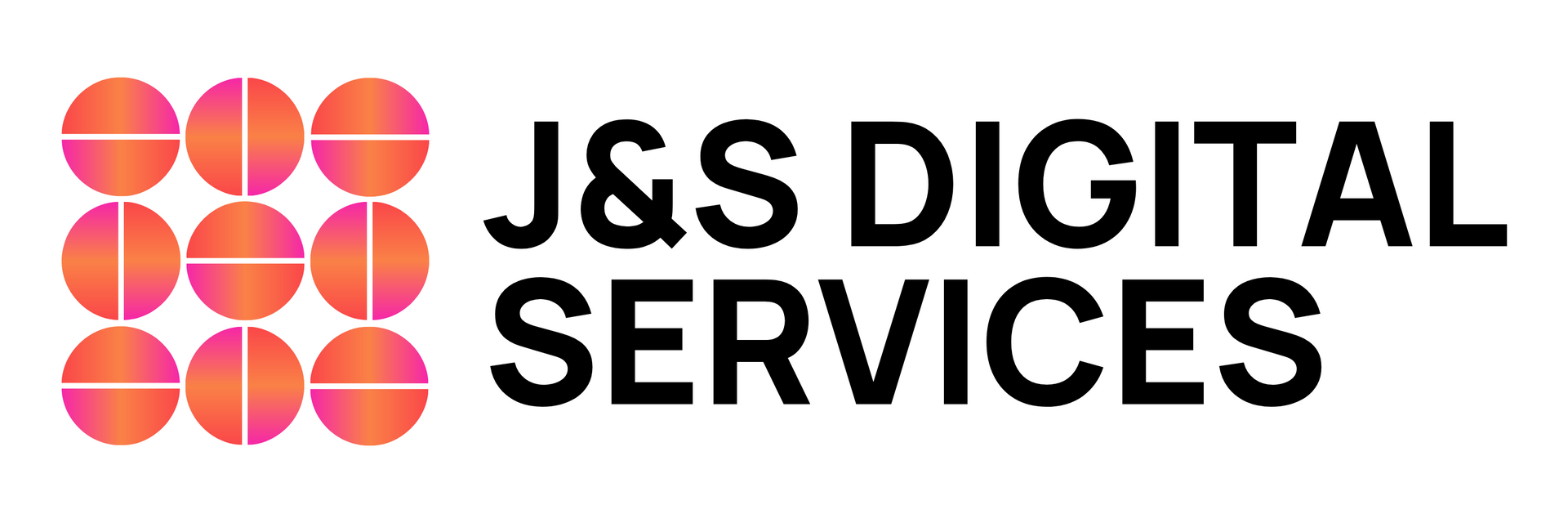SEO vs. SEM Marketing: Which option is best for your business?
The never-ending SEO vs. SEM marketing debate rages on. Here's our Take.

Ah, the question we all want to know the answer to. Which one is better? SEO or SEM? The truth is, both are beneficial in their own ways and the best results come from using both together.
The debate over SEO vs. SEM marketing seems to be everlasting between marketers, but we believe you need to mix and match each type of marketing to have a successful online digital marketing strategy. These two terms are commonly interchanged by accident, so it's important to understand the difference.
At a glance...Search Engine Optimization (SEO) is the practice of optimizing a website so that it ranks higher in search engine results pages (SERPs), while Search Engine Marketing (SEM) is the broader practice of marketing a website through paid ads that appear in SERPs. Now that we've cleared that up, let's take a closer look at each term.
Need help with making a decision about your SEO vs. SEM marketing strategies? Contact J&S Digital for assistance.
What is SEO?
We've covered this topic in greater detail in our recent blog post, but to summarize: SEO focuses on making a website's content as relevant and useful as possible to users, which will in turn cause search engines like Google to rank the site higher in search engine results pages (SERPs). Managing SEO is an ongoing practice of optimizing a website to rank higher in search engine results, and it isn't easy to be successful at it. It takes time, effort, and a lot of patience. But, it is worth it because once you rank higher in SERPs, you'll start to see more organic traffic (i.e. people who found your site without you having to pay for it) coming to your site.
SEO is important for brands because it helps them to be found online by potential customers who are searching for content relevant to your business. When customers search for products or services (or relevant keywords or phrases) that a brand offers, the brand’s website should ideally appear as high as possible in the search results. Research has shown that people are more likely to click on a result that appears higher up in the search results, so if you want to maximize your organic reach, try to rank as high as you can through strategic SEO marketing.
To manage their SEO, brands need to ensure that their website is optimized for search engines and what potential customers are searching for. This means using relevant keywords throughout the website, including in the website’s content, titles, and meta descriptions. In addition, brands need to build links to their website from other websites (this is called “link building”), as this also helps to improve a website’s SEO.
The four main components of SEO
There are four main components of SEO that brands should keep in mind when developing a comprehensive SEO strategy:
- Technical SEO. Technical SEO focuses on increasing the technical structure of a website and explores improving site speed, mobile friendliness, crawlability, structured data, and more.
- On-page SEO. This is the practice of improving a website's search engine ranking by optimizing its components. On-Page SEO refers to all activities that focus on optimizing aspects of a web page that have a direct bearing on how search engines interpret the material in context, such as a page's title, , blogging, H1 tags, and meta tag optimization, among other things.
- Quality Content. If you want your site to rank in Google's top spots, you'll need content. Content is one of Google's most important ranking criteria, and without excellent content that exactly matches the searcher intent, you will be hard pressed to rank in the top positions. However, creating content isn't simply about writing; there must also be a strategy in place to ensure that the content you create is high quality, keyword rich, and informative.
- Link Building. Quality links are one of the most important ranking factors for SEO. Linking to your website from other high-quality websites tells search engines that your site is also high quality and can be trusted. Link building is the process of acquiring links from other websites, and there are many different ways to do it. Some common link building strategies include guest blogging, creating infographics, and broken link building.
All four of these pillars must be present for an SEO strategy to succeed. And, in many cases, a successful SEO strategy requires collaboration with professionals like us in each of these areas to produce a really effective plan that helps your brand achieve short and long term goals.
What is SEM?
SEM, or search engine marketing, is a digital marketing strategy that uses paid advertising to improve visibility and traffic on a website. SEM is fairly straightforward but basically works by bidding on keywords that potential customers are likely to use when searching for products or services online. When SEM ads are displayed in the search results, they can help to increase click-through rates and drive more traffic to your website. SEM can be an effective way to reach new customers and grow your business online because your advertisements are placed right where your targeted customers are looking.
SEM platforms like Google AdWords, Yelp Ads, and Bing Ads are used by businesses to create and manage their SEM campaigns. To get started with SEM, businesses first need to create a campaign, select their keywords, and set their budget. Once the campaign is live, businesses can then track their results and adjust their campaigns accordingly. SEM can be an effective way to reach out to potential customers and promote your business online. However, it is important to remember that SEM campaigns can be expensive and require ongoing management in order to be successful.
Some companies only have the budget to invest in one or the other, so we'll go into the pros and cons of SEO vs. SEM marketing and let you decide which option makes the most sense for your brand's next steps.
Need help determining which side to take in the SEO vs. SEM marketing debate? We can help manage both!
Pros of SEO
First, let's tackle the pros of SEO vs. SEM marketing. Here are some key advantages of focusing on SEO over SEM:
- Increased visibility. One of the primary benefits of SEO is that it can help your website rank higher in SERPs, making it more visible to potential customers. Both on-page (blogs, website landing pages) and off-page (Google Business Profile)
- Improved click-through rates (CTR). When your website is more visible in SERPs, it's typically going to generate quality traffic - visitors who are more likely to click through to your website and convert into customers. This , improved CTR can lead to increased sales and revenue for your business.
- Lower costs. SEM campaigns can be expensive, especially if you're bidding on popular keywords with high competition. This is especially true on the larger SEM platforms like Google AdWords. SEO is a more cost-effective option since you're not paying for each click or impression.
- Greater long-term ROI. While SEM campaigns may provide short-term results, SEO offers a more sustainable long-term strategy that can keep bringing new visitors and customers to your website for months or even years down the road.
- Better brand awareness. SEO can help improve brand awareness as your website becomes more visible in SERPs. In turn, this increased brand awareness can lead to more website traffic and conversions.
Cons of SEO
Although SEO can be a great way to improve your website's visibility and draw in more traffic, there are some downsides to consider as well.
- Time is money. SEO can be time-consuming and sometimes complicated, requiring you to keep up with the latest changes in search engine algorithms. That’s why it’s worth considering outsourcing SEO efforts to the pros.
- SEO can be expensive. It can also be costly, particularly if you hire an outside consultant or agency that overcharges you to help with your SEO efforts. That’s why our rates are always reasonable and our pricing is value-based, not standardized for all clients.
- No guarantees. Because of the ever-changing nature of search engines and how they rank your website, there is never a guarantee that your SEO efforts will pay off, and you may not see any results for months (or even years) down the line.
- SEO can be a bit of a black box. Google and other search engines are massive, complicated systems, making it difficult to know exactly what tactics are working and which ones aren't.
For all these reasons, SEO isn't always the best option for every business. If you don't have the time, resources, or patience to invest in SEO, SEM marketing may be a better solution.
Pros of SEM
When it comes to the SEO vs. SEM marketing debate for your business, paid advertising is one of the most effective tools in your arsenal. SEM is an incredibly powerful tool because it puts your business in front of potential customers who are already interested in what you have to offer.
Here are three , top benefits of SEM marketing:
- Detailed Ad Targeting. SEM is an extremely effective way to reach your target audience since you can target specific keywords and phrases that are relevant to your business. This ensures that your ads are being seen by people who are already interested in what you have to offer, which dramatically increases your chances of making a sale.
- Lead Generation. SEM is a great way to generate leads because you can design campaigns to hone in on potential customers who are further down the sales funnel and more likely to convert. Since you're paying for visibility, you'll also be seen by a much wider audience than if you were to rely on organic SEO alone.
- Increased ROI. SEM can be an extremely effective way to get the most out of a limited marketing budget. For our local business clients, we recommend using platforms like Yelp Ads where the costs per lead are lower and ROI is higher.
Cons of SEM
Now that we've covered the pros of SEM marketing, let's take a look at some of the potential downsides:
- Short-term results. Unlike SEO, which can take months (or even years) to show results, SEM is a much shorter-term marketing strategy. This means that if you're not careful with your budget, you could end up blowing through your entire marketing budget in just a few weeks with little to show for it. We always recommend using an omnichannel strategy to maximize results.
- Can be expensive. Depending on the keywords and phrases you're targeting, SEM can be quite expensive. If you're not careful with your budget, you could easily spend more than you're making in sales.This is especially true on Google and Facebook, where competition is massive and winning bids costs a lot.
- Requires ongoing effort. SEM is not a set-it-and-forget-it marketing strategy. In order to be successful, you need to continually monitor your campaigns and make adjustments as needed. That’s where professionals like ourselves come in.
Deciding between SEO vs. SEM marketing
So, which one is better? The answer is… both! Yes, you need a bit of both SEO and SEM to have a successful online marketing strategy. Each one has its own set of pros and cons, but using both together will give you the best results in your short and long term online strategies.
Generating leads and optimizing for ROI is what it's all about. Are you doing enough SEO or SEM marketing to make your marketing dollars count?
Want more info about SEO vs. SEM marketing? Get in touch with our team today to see how we can support your ongoing needs.














